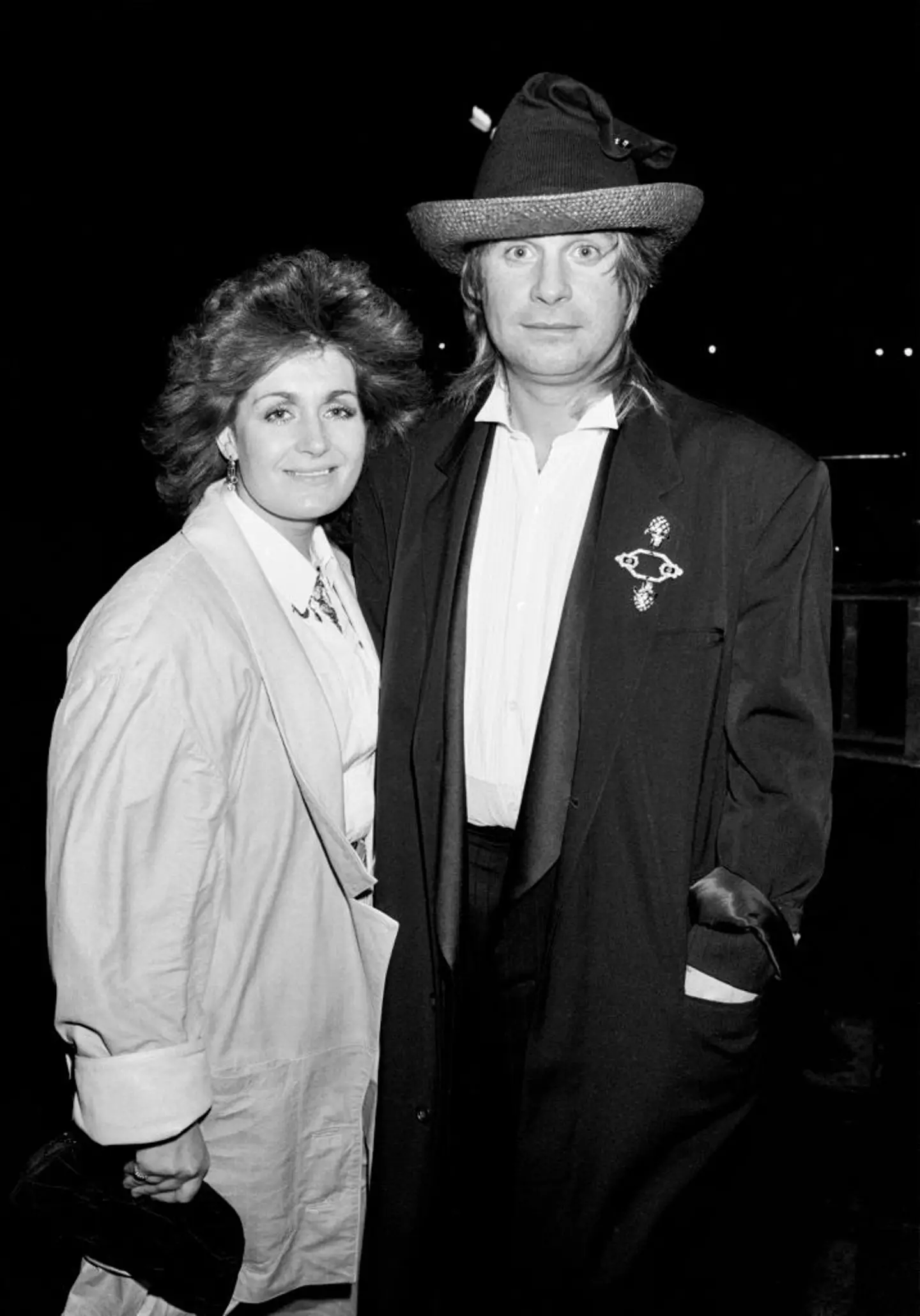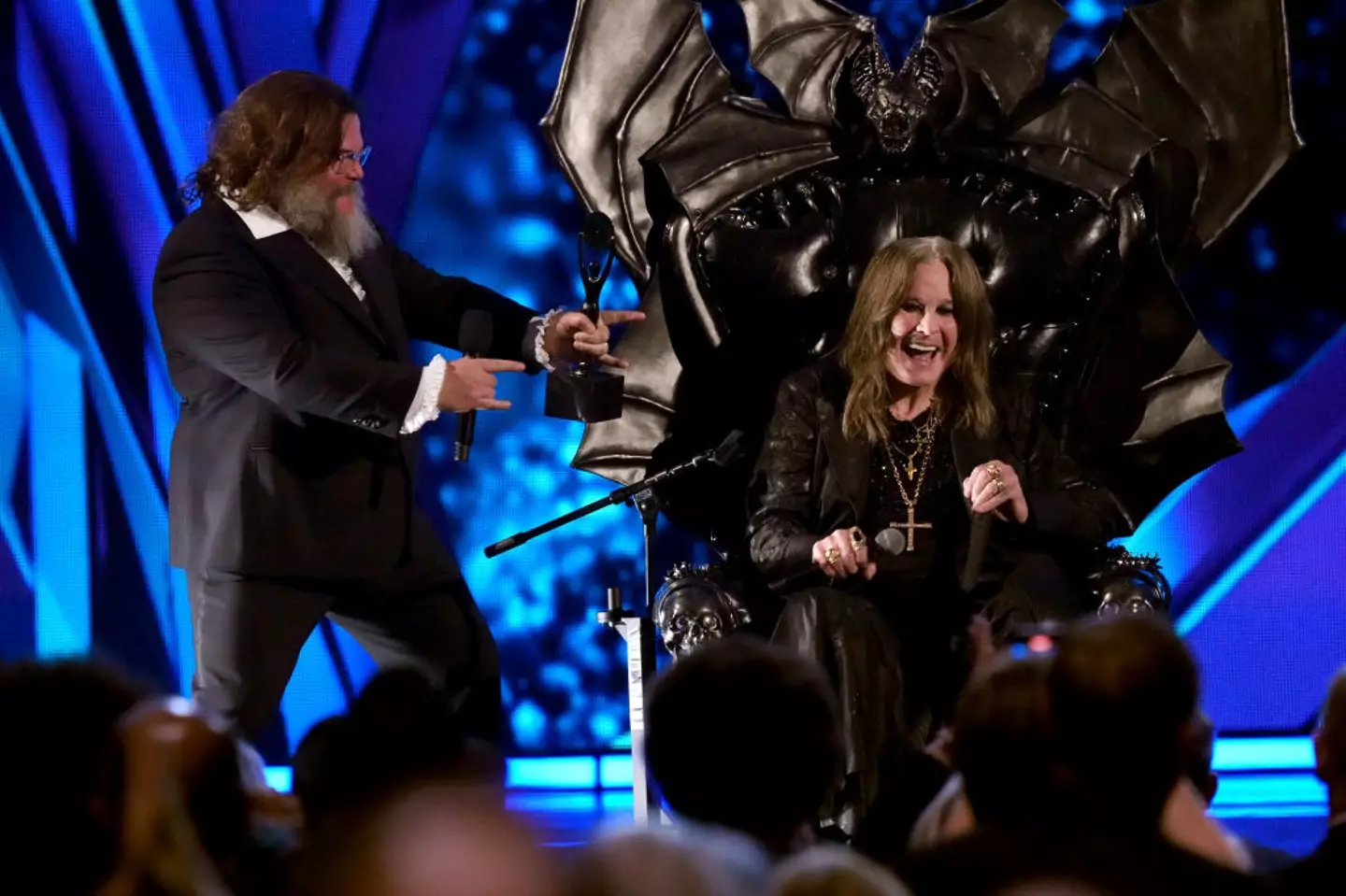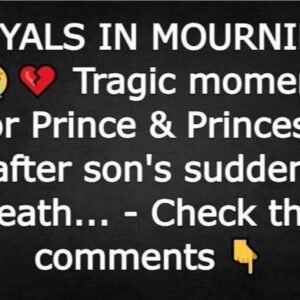The music world has lost one of its most iconic figures, as legendary rocker Ozzy Osbourne passed away at the age of 76, surrounded by his loving family. In the weeks leading up to his death, his devoted wife Sharon Osbourne orchestrated something truly extraordinary—a final gift that would honor both the man and the musical legacy he created over more than five decades in the industry.
A Love Story That Transcended Fame
To understand the significance of Sharon’s final gesture, one must first appreciate the remarkable partnership that defined both their personal and professional lives. Sharon and Ozzy’s relationship began in the early 1970s when she was just a teenager working for her father’s management company. What started as a professional arrangement blossomed into one of rock music’s most enduring love stories, spanning over four decades of marriage, three children, and countless challenges that would have broken lesser partnerships.
Their bond was forged not just in the glamorous world of rock stardom, but through the trenches of addiction, health scares, family tragedies, and the relentless pressures of fame. Sharon became far more than just Ozzy’s wife—she was his manager, his anchor, his fiercest protector, and often, his lifeline. Through Ozzy’s well-documented struggles with substance abuse, his various health crises, and the demanding world of entertainment, Sharon remained the constant force that kept their family and his career intact.

Ozzy and Sharon in 1985 (Dave Hogan/Getty Images)
The Devastating Diagnosis
In 2019, their world shifted dramatically when Ozzy received a diagnosis that would change everything: Parkinson’s disease. This progressive neurological condition, which affects movement and can impact cognitive function, presented challenges that even the Prince of Darkness couldn’t simply rage against. The diagnosis came after months of concerning symptoms that had initially been attributed to other causes, including a serious fall that had left Ozzy with multiple injuries.
Parkinson’s disease is particularly cruel in its gradual progression. Unlike other conditions that might strike suddenly, it slowly strips away a person’s physical capabilities while often leaving their mind intact to witness the changes. For someone like Ozzy, whose entire identity was built around explosive stage performances, powerful vocals, and dynamic physical presence, the diagnosis represented not just a health challenge, but an existential threat to everything he had been.

Ozzy was diagnosed with Parkinson’s disease in 2019 (Jeff Kravitz/FilmMagic)
The disease affects different areas of the brain over time, causing tremors, stiffness, and difficulty with movement and coordination. In Ozzy’s case, it particularly impacted his mobility, affecting his legs and making the high-energy performances he was known for increasingly difficult. However, as Sharon would later note with characteristic strength and optimism, his voice—that distinctive, powerful instrument that had defined heavy metal for generations—remained as strong as ever.
Sharon’s Unwavering Dedication
Throughout Ozzy’s health struggles, Sharon’s devotion never wavered. Having managed his career for decades, she understood better than anyone what music meant to him. It wasn’t just his profession; it was his identity, his passion, and his connection to millions of fans around the world. As his condition progressed, Sharon began to contemplate how she could honor that connection one final time.
The idea that would eventually become Ozzy’s final performance began to take shape in Sharon’s mind as she witnessed her husband’s ongoing battle with Parkinson’s. She knew that despite his physical limitations, his love for music and his fans remained undiminished. The challenge was creating an opportunity that would be both physically manageable for Ozzy and meaningful enough to serve as a fitting tribute to his extraordinary career.
The Genesis of a Final Gift
Sharon’s vision was ambitious and heartfelt: a return to Ozzy’s roots for one last spectacular performance. She envisioned bringing her husband back to Aston, the working-class Birmingham neighborhood where he had grown up, for what would become known as the “Back to the Beginning” benefit concert. This wasn’t just about nostalgia—it was about completing a circle, bringing the global superstar back to the streets that had shaped him before he became the Prince of Darkness.
The location choice was deeply symbolic. Aston Villa Football Club’s ground held special significance for Ozzy, as it was located in the heart of the community where he had spent his formative years. Growing up in poverty in post-war Birmingham, football and music had been among the few escapes available to a young John Michael Osbourne. The club represented not just local pride, but a connection to his authentic self—the person he had been before the leather pants, the bat-biting incidents, and the global fame.
Assembling Rock Royalty
Sharon’s vision extended far beyond a simple farewell concert. She wanted to create an event that would celebrate not just Ozzy’s career, but his influence on multiple generations of musicians. The lineup she assembled read like a who’s who of heavy metal and hard rock: Metallica, Guns N’ Roses, Slayer, and Anthrax—all bands that had been influenced by or had direct connections to Ozzy’s work, both as a solo artist and as a member of Black Sabbath.
The decision to reunite Black Sabbath for this performance was particularly poignant. The band that had essentially invented heavy metal in the late 1960s and early 1970s would take the stage together one more time, in the very city where their revolutionary sound had first taken shape. For Sharon, this reunion represented the full scope of Ozzy’s musical legacy—from the young working-class musician who helped create a new genre of music to the seasoned performer saying goodbye to his life’s work.
“I thought of having all the bands he’s ever had relationships with perform and maybe do Sabbath songs and Ozzy songs,” Sharon explained to Music Business Worldwide. “It became a celebration of the music. All the generations are going to be there that Sabbath and Ozzy have passed the torch down to.”
More Than Entertainment: A Charitable Legacy
The concert wasn’t just about music—it was about creating a lasting positive impact. The event raised an astounding $189 million for charity, transforming what could have been simply a farewell concert into a significant philanthropic achievement. This aspect of the event reflected both Sharon and Ozzy’s desire to give back to the community that had given them so much, and Sharon’s understanding that her husband’s final major public act should benefit others.
The charitable component added another layer of meaning to the event. Throughout their careers, both Sharon and Ozzy had been involved in various charitable causes, but this represented something more substantial—a final statement about the kind of legacy they wanted to leave behind. It demonstrated that even in his final performance, Ozzy’s impact would extend beyond entertainment to tangible help for those in need.
The Emotional Journey Home
For Ozzy, the return to Aston was deeply emotional. Despite decades of international fame, multiple homes around the world, and a lifestyle far removed from his working-class origins, Birmingham had always remained home in his heart. Sharon understood this connection and knew that bringing him back to perform in the place where it all began would be profoundly meaningful.
“The only place that we could do it would have been Aston, because that’s where Ozzy was born and grew up,” Sharon told the media. Her words revealed the careful thought that had gone into every aspect of the event. This wasn’t about convenience or profit—it was about emotional authenticity and honoring the journey that had brought them all to this point.
At the time, Sharon noted that Ozzy was “very happy to be coming back and very emotional about this.” Despite the physical challenges posed by Parkinson’s disease, particularly the impact on his mobility, his voice remained strong. “Parkinson’s is a progressive disease. It’s not something you can stabilize. It affects different parts of the body, and it’s affected his legs,” she explained to The Sun. “But his voice is as good as it’s ever been.”
A Performance for the Ages
The concert itself was everything Sharon had envisioned and more. Despite his physical limitations, Ozzy delivered a performance that reminded everyone why he had earned his legendary status. His voice, that distinctive instrument that had defined heavy metal for generations, rang out as powerfully as ever. The sight of him on stage with Black Sabbath, performing the songs that had changed music history, provided an emotional crescendo to a career that had spanned more than five decades.
The other performers on the bill treated the evening with the reverence it deserved. These weren’t just musicians fulfilling a booking—they were artists paying tribute to someone who had fundamentally influenced their own careers and the entire genre of heavy metal. The performances became a testament to Ozzy’s enduring influence on multiple generations of musicians.
After the performance, Ozzy’s words to the crowd captured the emotional weight of the moment: “You’ve no idea how I feel – thank you from the bottom of my heart.” These words, filled with gratitude and emotion, would prove to be among his final public statements, making them all the more poignant in retrospect.
The Final Chapter
Just weeks after this triumphant return to his roots, Ozzy Osbourne passed away peacefully, surrounded by his family. The timing makes Sharon’s gift even more precious—she had somehow sensed that this might be his final opportunity to connect with his fans and his musical legacy in such a meaningful way.
The family’s statement following his death reflected the same grace and strength that Sharon had shown throughout their journey together: “It is with more sadness than mere words can convey that we have to report that our beloved Ozzy Osbourne has passed away this morning. He was with his family and surrounded by love. We ask everyone to respect our family privacy at this time.”
A Legacy of Love and Music
Sharon’s final gift to Ozzy represents something profound about love, partnership, and understanding what truly matters to someone you care about. She could have arranged for him to rest comfortably in their final weeks together, avoiding the physical and emotional demands of such a major performance. Instead, she recognized that for Ozzy, music wasn’t just what he did—it was who he was.
By orchestrating this return to his beginnings, Sharon gave Ozzy something money couldn’t buy: the opportunity to complete his story on his own terms, in the place where it all began, surrounded by the music and musicians that had defined his life’s work. It was a gesture that transcended typical expressions of love, reaching into the realm of truly understanding and honoring someone’s essential nature.
The concert also served as a bridge between past and future, bringing together the originators of heavy metal with the artists they had influenced, ensuring that Ozzy’s musical DNA would continue to flow through future generations of musicians. In this way, Sharon’s final gift became not just about saying goodbye, but about ensuring that Ozzy’s influence would continue long after his physical presence was gone.
Today, as tributes pour in from around the world—including from his beloved Aston Villa Football Club, which noted his “special connection to the club and the community he came from”—Sharon’s final gift stands as a testament to a love story that lasted over four decades and a partnership that changed the face of popular music forever.







